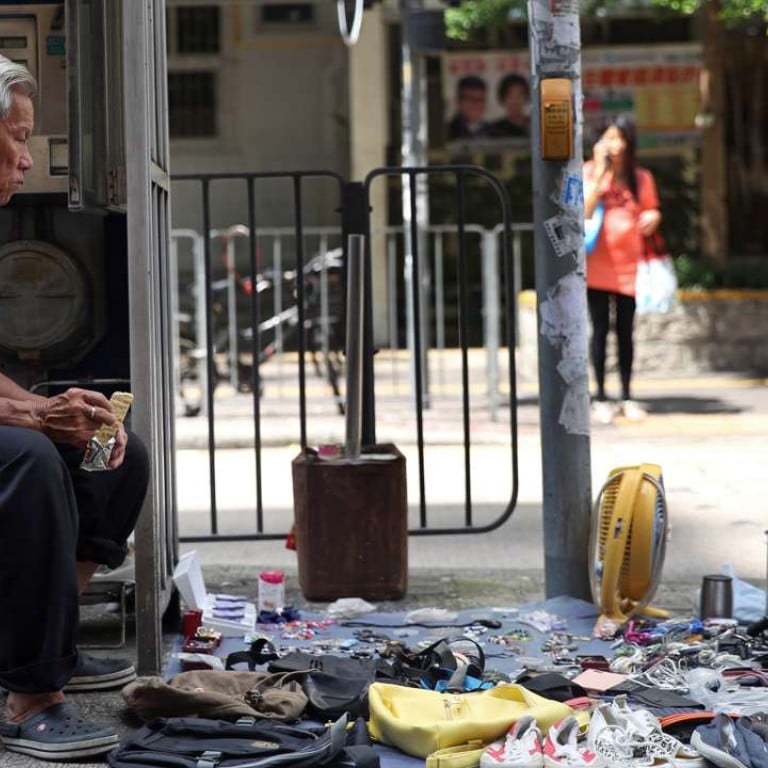
It’s official: Hong Kong government figures in last poverty report show more people becoming impoverished
Poverty Commission to release report showing that the proportion of poor people increased slightly last year, prompting calls for new government approach to problem
The number of impoverished Hongkongers is still on the rise despite the government’s efforts to ease the problem, a report to be released at Saturday’s Poverty Summit shows.
The Hong Kong Poverty Situation Report 2015, the last study to be unveiled by the current administration, is also regarded as an assessment of the performance of Chief Executive Leung Chun-ying, who placed particular emphasis on fighting poverty in his election manifesto four years ago.
Sources close to the commission said the city’s population of poor people – based on those whose household income falls below the median income according to household size – will see a spike of 20,000 to 1.345 million in 2015 from the year before, with a slight increase from 19.6 per cent to 19.7 per cent.
After taking government welfare into account, the total population dropped to 971,000, which is still 9,000 more than in 2014.

Former welfare-sector lawmaker Peter Cheung Kwok-che, a commission member, said the trend reflected the fact that the commission had failed over the years to get to the root of the problem.
“We have been relying on cash aid but that won’t resolve every problem ... including the biggest challenge in stopping generational poverty,” Cheung said. “The government in future should conduct research exploring solutions to the structural problems of poverty.”
Cheung pointed out that a huge gap continued to exist between children born in low-income and well-off families, which made it particularly hard for them to escape poverty as they grew up.
“The government has been placing too much emphasis on equality but actually policies should really be aimed at giving the needy a hand,” Cheung said.
The former lawmaker also said the government was too rigid and bureaucratic in fighting poverty, adding it should come up with short, medium and long-term plans to resolve the issue.
Commission member and lawmaker Leung Che-cheung of the Democratic Alliance for the Betterment and Progress of Hong Kong said the government should do more to equip people to overcome poverty, instead of relying on dishing out cash subsidies.

